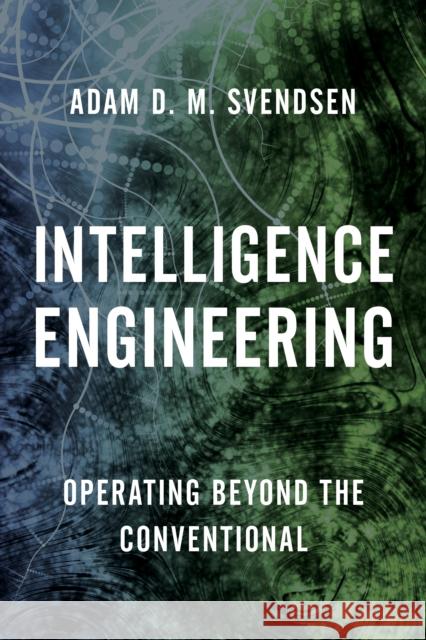Intelligence Engineering: Operating Beyond the Conventional » książka
Intelligence Engineering: Operating Beyond the Conventional
ISBN-13: 9781442276642 / Angielski / Twarda / 2017 / 158 str.
Intelligence Engineering: Operating Beyond the Conventional
ISBN-13: 9781442276642 / Angielski / Twarda / 2017 / 158 str.
(netto: 289,20 VAT: 5%)
Najniższa cena z 30 dni: 299,95
ok. 30 dni roboczych.
Darmowa dostawa!
Intelligence continues to undergo significant changes at a remarkable pace, notably developments related to 'Big Data', surveillance and cyber. Intelligence today involves multiagency, multinational, multidisciplinary, multidomain information sharing and sense-making, conducted by commerce, academic, government, civil society, media, law enforcement, military, and nongovernmental/nonprofit organisations. Increasingly complex systems, including interrelated technical dimensions, are central to modern defence systems. Intelligence Engineering: Operating Beyond the Conventional provides a new framework for generating analysis, exploring how systems to system-of-systems can be harnessed both for and into the future. Intelligence engineering (IE) involves the use of scientific and technical knowledge to artfully create, operate, maintain, and dismantle complex devices, machines, structures, systems, and processes that support and/or disrupt human endeavour occurring in the intelligence context. Spanning both human and technical intelligence realms, IE includes the collection and analysis of information that is of military and/or political value, and that relates to international relations, defence, and national security. Strategic Futures, risk management across to resilience concerns are similarly engaged. As the chapters show, intelligence continues to extend further into engineering realms, including Federation of Systems and System of Systems Engineering approaches, social engineering, and so forth. System of Systems Engineering is a methodology used by the US Department of Defense, law enforcement, military, and emergency management work. It is used for information collection, allowing the sharing of research data and tools (such as software), for example in joint operations where army, navy, and air force must work together, with their systems interoperating with each other, or with coalition forces. Command and control, communications, and medical care systems are also systems that must interoperate to support operations in hostile or unstable situations. The book presents several System of Systems analysis, along with important intelligence criteria relating to specificity, timeliness, accuracy, relevance, and clarity. Risk analysis and assessment are discussed as well. This core text will offer students and practitioners a toolkit ready for use by outlining the methodology of Intelligence Engineering.











